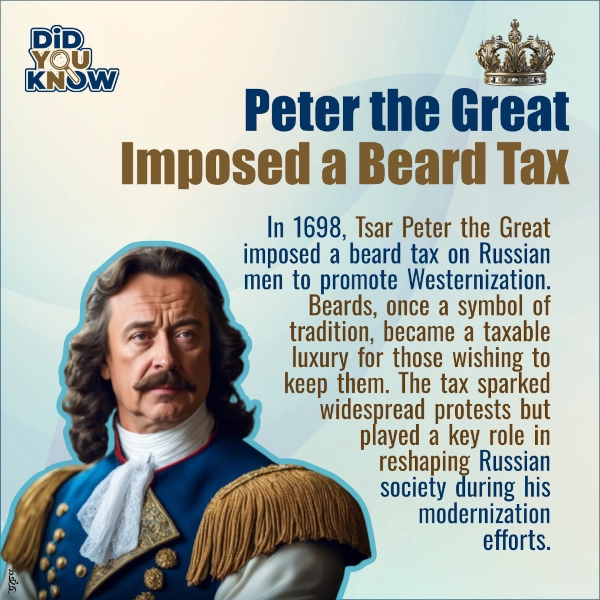
A Bold Move in Russian History
In 1698, Tsar Peter the Great enacted a controversial policy: a beard tax. At a time when facial hair was an important cultural and religious symbol, Peter sought to modernize Russia and encourage Western-style grooming. The tax was imposed on all men who wished to keep their beards, marking a radical departure from tradition.
A Symbol of Westernization
Peter’s aim was to align Russia with European trends, particularly those of Western Europe. He believed that beards represented an outdated, “barbaric” image and that adopting a cleaner-shaven look would signal progress and modernization for Russia. To enforce this, men had to pay a tax to sport their facial hair, with higher rates for wealthier individuals.
The Cultural Shift
While the tax was unpopular, it led to a cultural shift in Russia. Some men complied by paying the tax, while others resorted to shaving off their beards to avoid the levy. The beard tax is a reminder of the dramatic cultural changes Peter the Great brought to Russia as part of his ambitious vision to transform the country.
Fun Facts
- Peter’s Precedent: Peter was not the first ruler to tax beards, but his imposition of the tax was particularly strict and widespread.
- Beard Token: Those who paid the tax were given a special token to prove they had complied with the law.
- The Backlash: The beard tax was met with protests from religious leaders, who saw beards as a sign of piety.
- End of the Tax: The beard tax lasted for several years, but it was eventually repealed after Peter’s death.
For more surprising tales from history, check out our “Unusual Reality” section and explore other fascinating quirks of the past!

We choose not to clutter your experience with ads. If you’d like to support us, consider showing some love by liking this post on X (Twitter), Instagram or Facebook!
Share this Post, Spread the Knowledge!
